Middle East
Documentary sheds light on Biden’s reactions to Shireen Abu Akleh’s killing | Occupied West Bank News
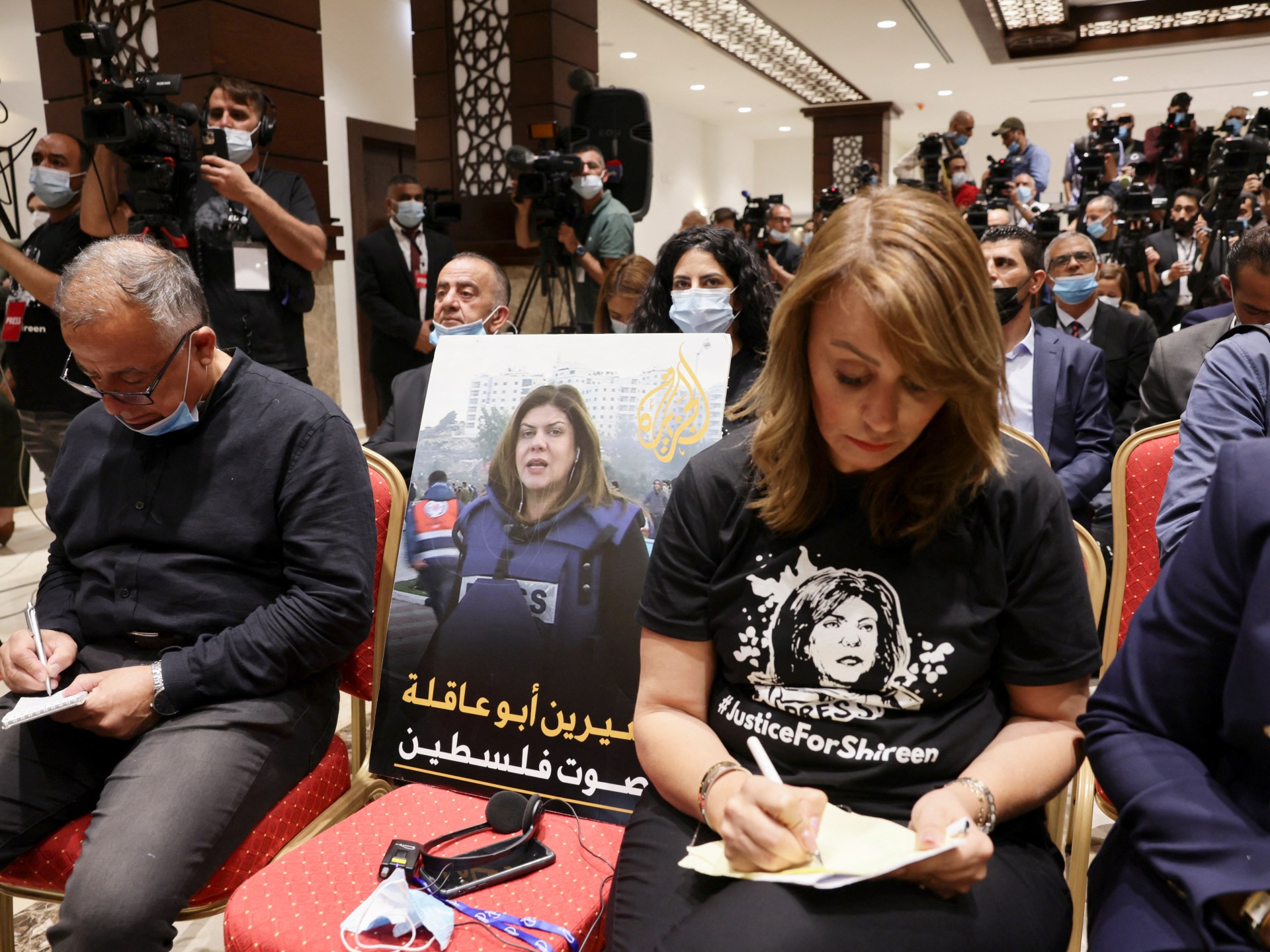
A documentary film has shed new light on how the administration of United States President Joe Biden responded to the killing of Al Jazeera journalist Shireen Abu Akleh, suggesting Washington had evidence indicating her shooting death was likely intentional.
An Israeli sniper fatally shot Abu Akleh nearly three years ago while she reported from the Jenin refugee camp in the Israeli-occupied West Bank on May 11, 2022.
The new film — a 40-minute investigative documentary from the Washington, DC-based media company Zeteo — was released on Thursday just ahead of the anniversary of her death.
Under the title Who Killed Shireen?, the documentary explores not only who pulled the trigger but why justice has been so elusive in Abu Akleh’s case. It also offers the clearest picture yet of the Biden administration’s political manoeuvring as public pressure mounted for accountability.
Abu Akleh was a US citizen, and during her final reporting assignment, she wore both a helmet and a blue vest clearly labelled with the word “press” to indicate her status as a journalist.
In the aftermath of her killing, the Biden administration faced pressure to investigate the circumstances of her death and whether the shooting was intentional.
But while the administration initially called for an “independent, credible investigation”, it shifted its stance as the months progressed. It walked back calls for the killer to be “prosecuted” and eventually described the shooting as “the result of tragic circumstances”.
It also eased its scrutiny of the Israeli military, calling for accountability only in the form of a review of its “rules of engagement”.
The documentary Who Killed Shireen? features interviews from former Washington insiders about why the Biden administration made such a pivot. Its most damaging testimony comes from an anonymous official, who spoke with his face and voice obscured.
In the film, the official claims the evidence available to the Biden administration indicated that Abu Akleh’s death “was an intentional killing”. He said that assessment was based on the “visual capabilities of that day” and the distance between the Israeli snipers and the journalists who were shot.
Another journalist, Ali al-Samoudi, was also wounded at the same time as Abu Akleh, though he survived his gunshot.
“Whether or not they knew it was her [Abu Akleh] or not can very well be debated, but they would have absolutely known it was a media person or a noncombatant at a minimum that [the Israeli soldier] shot and killed,” the anonymous Biden official said.
He added that it was his “belief” that the shooter would have been able to see Abu Akleh’s blue “press” jacket.
The official acknowledged the shift in the Biden administration’s position, from viewing the shooting as “an intentional killing” to describing it as “a tragic accident”. He linked that about-face to the historically close ties the US has shared with Israel.
“Ultimately, I think what it came down to was different pressure within the administration to not try to anger the government of Israel too much, by trying to force their hand at saying they intentionally killed a US citizen,” the official said.
Another former US official, Andrew Miller, also spoke to filmmakers as part of the documentary. Miller served as the deputy secretary of state for Israeli-Palestinian Affairs from 2022 to 2024, and he indicated that the Biden administration had not been forthcoming about the stonewalling it faced from the Israeli government.
He said the government of then-Israeli Prime Minister Naftali Bennett refused to allow the US access to the soldier who fired the fatal shot, even for “informal” questioning.
Miller also cast doubt on Israeli claims that Abu Akleh was shot during a crossfire with Palestinian fighters. He explained that the Biden administration had information from the start that contradicted those claims.
“The fact that the official Israeli position remains that this was a case of crossfire … [that] the entire episode was a mistake — as opposed to potentially a mistake in identification or the deliberate targeting of this individual — points to, I think, a broader policy of seeking to manage the narrative,” Miller said.
The Biden administration had never publicly contradicted Israel’s assessment. Instead, when the Israeli military released its final report on the killing in September 2022, it said it “welcomed” the assessment.
That report asserted that Abu Akleh was “accidentally hit” by an Israeli bullet “during an exchange of fire in which life-risking, widespread and indiscriminate shots were fired toward” Israeli soldiers.
To date, the US government has never declassified a State Department report on the killing or confirmed media reports that the Department of Justice was conducting a separate probe.
Rights groups, press freedom organisations, and lawmakers have long called the Biden administration’s response inadequate, appealing for greater transparency and for the US to withhold aid to the military unit responsible.
Advocates said the latest revelations underscore a continued cycle of impunity.
“The US government has acted as an accomplice to Israeli war crimes, not only against Palestinians but Americans, too, trumping loyalty to its own laws and citizens,” said Raed Jarrar, advocacy director at the human rights organisation Democracy for the Arab World Now (DAWN), in a statement responding to the documentary.
Middle East
Key takeaways: Documentary names alleged killer of Al Jazeera’s Abu Akleh | Crime News
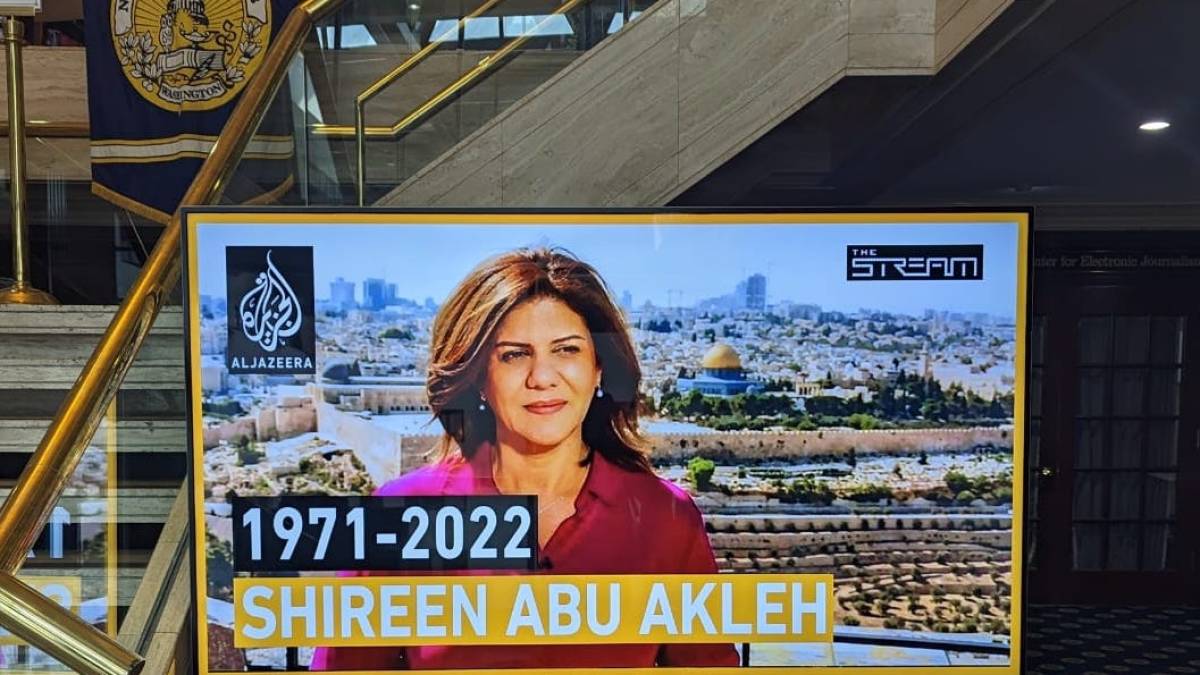
A new documentary claiming to have uncovered the name of the Israeli soldier responsible for shooting Al Jazeera correspondent Shireen Abu Akleh has been released online.
Abu Akleh, a Palestinian American who had been with Al Jazeera since 1997, was killed while reporting from Jenin in the occupied West Bank in May 2022.
Shortly after her death, Israeli officials and media suggested she had been killed by Palestinian gunfire.
However, subsequent reports from human rights organisations and news agencies showed that the Palestinian fighters initially accused by Israel were some distance from Abu Akleh’s killing and, in September, Israel conceded there was a “high probability” its forces had “accidentally” killed the correspondent.
Contributors to the documentary, Who Killed Shireen? released on Thursday by Zeteo, suggested that Abu Akleh’s killing has helped further embolden a sense of impunity among Israeli soldiers, which has since contributed to the killing of more than 200 journalists by the Israeli military and settlers in the West Bank.
Here are four of the key takeaways from the investigation:
Biden administration knew that Israel was responsible for Abu Akleh’s killing
According to numerous testimonies featured in the film, officials within the Biden administration either knew or suspected that Abu Akleh had been shot by an Israeli soldier, but continued to support Israeli claims that she had been killed by Palestinians.
The filmmakers also claim that US officials had been informed by an unnamed Israeli general responsible for the West Bank within hours of Abu Akleh’s killing that one of his soldiers had likely shot her.

Despite this, US officials continued to support public Israeli accounts of Abu Akleh’s killing that attempted to shift the blame, and then, when Israel publicly admitted the likely culpability of one of its soldiers, that the killing was unintentional.
US officials did not publicly dispute that narrative, and instead said they were unable to determine if a crime had been committed without access to the shooter, which Israel refused to allow.
US refused to take the matter further
Speaking to reporter Dion Nissenbaum, one anonymous staffer within the former administration of President Joe Biden said that officials declined to press the Israeli administration on killing one of their citizens for fear of “anger[ing] the Israeli government”.
This is despite officials having concluded, the same source said, that Abu Akleh’s killing had been an intentional act.
Interviewed in the documentary, Eyal Hulata, who was Israel’s national security adviser at the time of the killing, defended Israel’s decision not to release the suspected soldier for questioning by the United States, saying that Israel had a “very good and trustworthy investigative mechanism”.
Asked if he could ever remember the subject of the US journalist’s murder arising in discussions between President Biden and Naftali Bennett, who was Israeli prime minister at the time, Hulala replies, “This wasn’t a topic between the prime minister and the president.”

Further requests from the Biden administration that Israel change the rules of engagement that some felt had led to Abu Akleh’s death met, according to one interviewee, “the brush off”.
The failure of the Biden administration to hold Israel to account or bring about a change to its rules of engagement after Abu Akleh’s murder has, US Senator Chris Van Hollen told filmmakers, contributed towards “the deaths of … other Americans and other civilians”.
The soldier blamed for killing Abu Akleh is now dead
The film reports that, according to soldiers active that day, Abu Akleh was killed by Alon Scagio, a sniper with the Israeli military’s elite “Duvdevan” unit.
Speaking of his response to having killed the journalist, despite her identity as a member of the press being clear, a friend of Scagio says he didn’t “remember anything special” about Abu Akleh’s killing, “so it wasn’t, like, an issue. He wasn’t happy, like, ‘Hey, I killed a journalist,’ of course, but he wasn’t … eating himself from the inside.”
Investigations by the filmmakers show Scagio was moved out of the Duvdevan to a commander position in a different unit, distancing him from any investigation, as a result, the filmmakers guess, of having killed Abu Akleh.
Scagio was later killed in June 2024 by a roadside bomb in Jenin, the same West Bank city in which he is accused of killing Abu Akleh.
As a result of the fallout from Abu Akleh’s killing, Scagio’s friend claims the Duvdevan unit took to using her image for target practice.
US government support for Israel is unwavering
The killing of Abu Akleh came during what at the time was considered an intense phase of Israeli raids on the occupied West Bank. She was one of at least 145 Palestinians killed during the raids in 2022.
But since then, Israel has only ramped up its violence in both the West Bank and Gaza.
Israel has killed more than 52,000 Palestinians since it launched its war on Gaza in October 2023, decimating the territory and refusing the entry of food since March, starving the local population.
And in the West Bank, Israel has increased the severity of its attacks, using heavy weaponry and air strikes, and forcing Palestinians out of their homes. More than 900 Palestinians have been killed there.

Despite that, the US – both under former President Joe Biden and current President Donald Trump – has maintained its support of Israel, even as much of the rest of the world has criticised its actions.
At the United Nations, the US regularly votes alongside Israel, while the majority of member states seek to use the international body to pressure Israel to stop. And the US has threatened the International Criminal Court for seeking to arrest Israeli Prime Minister Benjamin Netanyahu for committing war crimes.
It is, therefore, perhaps no surprise that, even though Abu Akleh was a journalist doing her job when she was killed and an American citizen, the US has been willing to look the other way.
Middle East
Israel retrofitting DJI commercial drones to bomb and surveil Gaza | Israel-Palestine conflict News
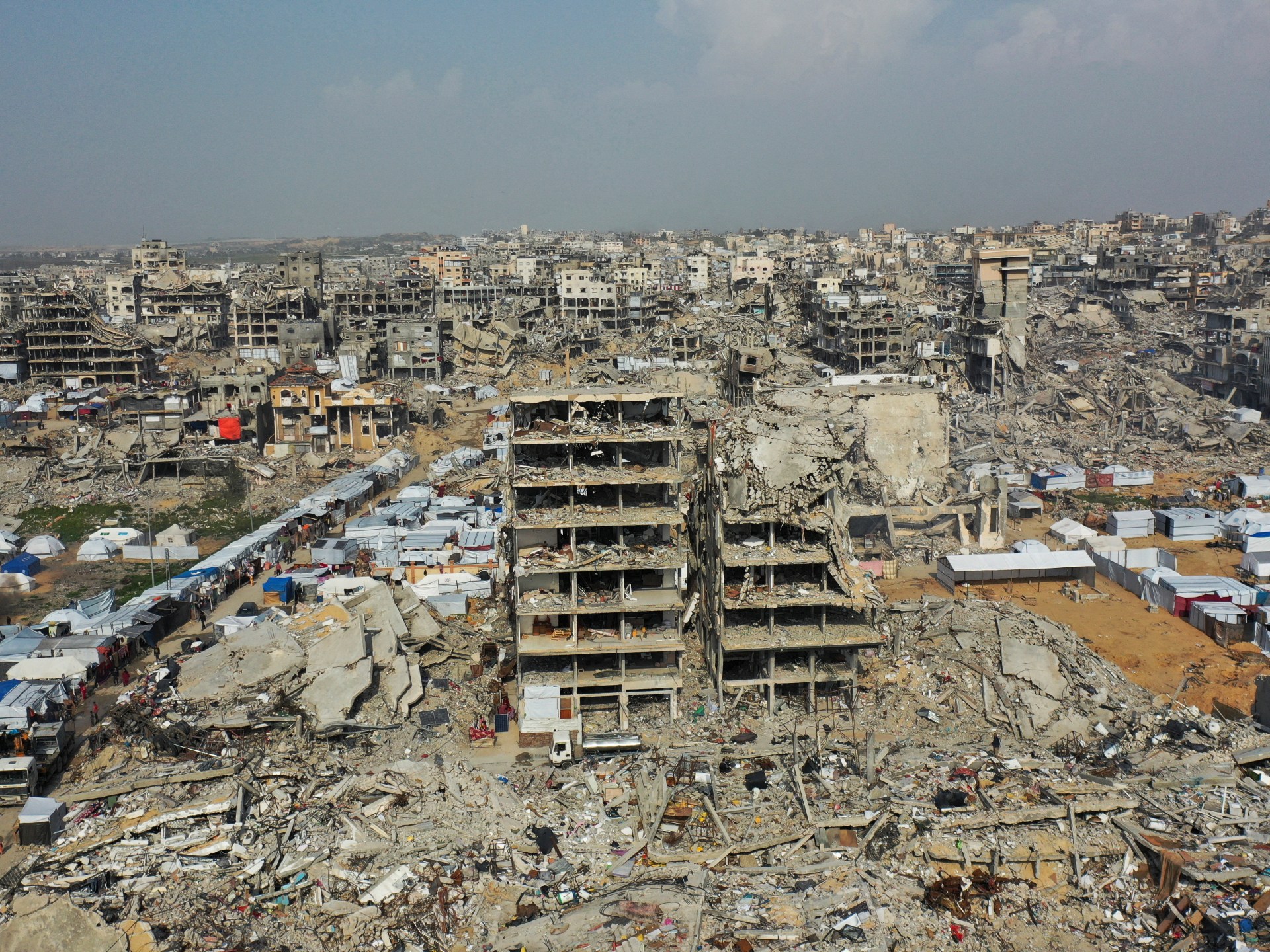
The Israeli military has been altering commercial drones to carry bombs and surveil people in Gaza, an investigation by Al Jazeera’s Sanad verification agency has found.
According to Sanad, drones manufactured by the Chinese tech giant DJI have been used to attack hospitals and civilian shelters and to surveil Palestinian prisoners being forced to act as human shields for heavily armoured Israeli soldiers.
This is not the first time DJI drones have been modified and used by armies. There were similar reports about both sides of the Russia-Ukraine war in 2022.
At the time, DJI suspended all sales to both countries and introduced software modifications that restricted the areas where its drones could be used and how high they could fly.
However, DJI has not stopped selling drones to Israel.

Israel’s use of DJI drones
The Israeli army’s use of DJI drones is not new.
By 2018, DJI drones were reportedly in extensive use across numerous divisions in the Israeli military. The Israeli campaign group Hamushim found evidence that Israeli military-trained operators were using DJI’s Matrice 600 model to drop tear gas on civilian protesters during the following year’s Great March of Return in Gaza.
Despite their previous deployment by the Israeli military, their lethal use against civilians and protected targets in Gaza, as documented in this investigation, is unprecedented.
Al Jazeera has reached out to Israeli authorities to request comment on the findings of this investigation but has received no response by time of publication.

Sanad has documented several DJI drones that have been adapted for military use.
However, it is the powerful DJI Agras drone, developed for agricultural use, that is the most significant.
According to its manufacturers, the DJI Agras can carry a substantial payload and is capable of precision flight.
As Sanad’s investigation shows, it can also be used to deliver an explosive payload to targets beyond the reach of conventional military forces.
In addition to the DJI Agras, the DJI Mavic has been used by the Israeli military across Gaza for reconnaissance and target acquisition.
Similarly, the compact DJI Avata drone, designed for recreational filming, has been repurposed by the Israeli military to navigate and map the intricate tunnel networks beneath Gaza.

Attacks on northern Gaza
By late 2024, Israel had laid siege to Gaza’s north, pushing the population to the brink of famine and imposing conditions described as “apocalyptic” by United Nations observers.
Residents and humanitarian organisations reported an alarming number of what appeared to be civilian drones armed with explosives.
In an incident documented by displaced civilians, footage shared on July 17, 2024, shows a DJI Agras drone dropping a bomb onto the IHH Turkish charity’s building in Jabalia, northern Gaza, less than 100 metres (330ft) from a school serving as a shelter and aid distribution centre.

In November in Beit Lahia, northern Gaza, a DJI Agras drone dropped a bomb in a residential neighbourhood where civilians had fled after Israeli shelling of a UN-operated school-turned-shelter.
People who witnessed the bombing told Sanad the attack seemed calculated to instil fear.

Surveillance and urban warfare
Beyond direct attacks, Israeli-modified DJI drones have been used extensively for surveillance and tactical operations throughout Gaza.

In a further incident, footage obtained by Al Jazeera Arabic from one Israeli drone shows a DJI Avata helping to track an unnamed Palestinian being used by heavily armed Israeli soldiers as a human shield – an illegal practice under international law – in Shujaiya in December 2023.
The individual is seen opening the school’s doors to make sure there were no Palestinian fighters inside, closely monitored by another drone that captured the entire operation.

DJI double standards: Gaza vs Ukraine
In 2022, in response to complaints from Ukrainian officials that DJI was sharing critical data with their Russian adversaries, the drone manufacturer suspended all sales to its retail partners in both countries.
DJI explained the move: “We will never accept any use of our products to cause harm, and we will continue striving to improve the world with our work.”
Despite evidence of DJI drones being weaponised by the Israeli military in Gaza, DJI has had no such response.
Responding to direct inquiries from Sanad, DJI said: “Our products are for peaceful and civilian use only, and we absolutely deplore and condemn the use of [DJI] products to cause harm anywhere in the world.”
A subsequent direct query asked if it plans “to halt sales in Israel or implement measures similar to those taken in the Russia-Ukraine conflict”.
But DJI did not respond to the query not has it undertaken any measures to halt sales or impose software restrictions on where drones can fly over Gaza, allowing continued military deployments of their drones by the Israeli military.
Middle East
One killed, eight wounded as Israel hits Lebanon in major post-truce attack | Israel attacks Lebanon News
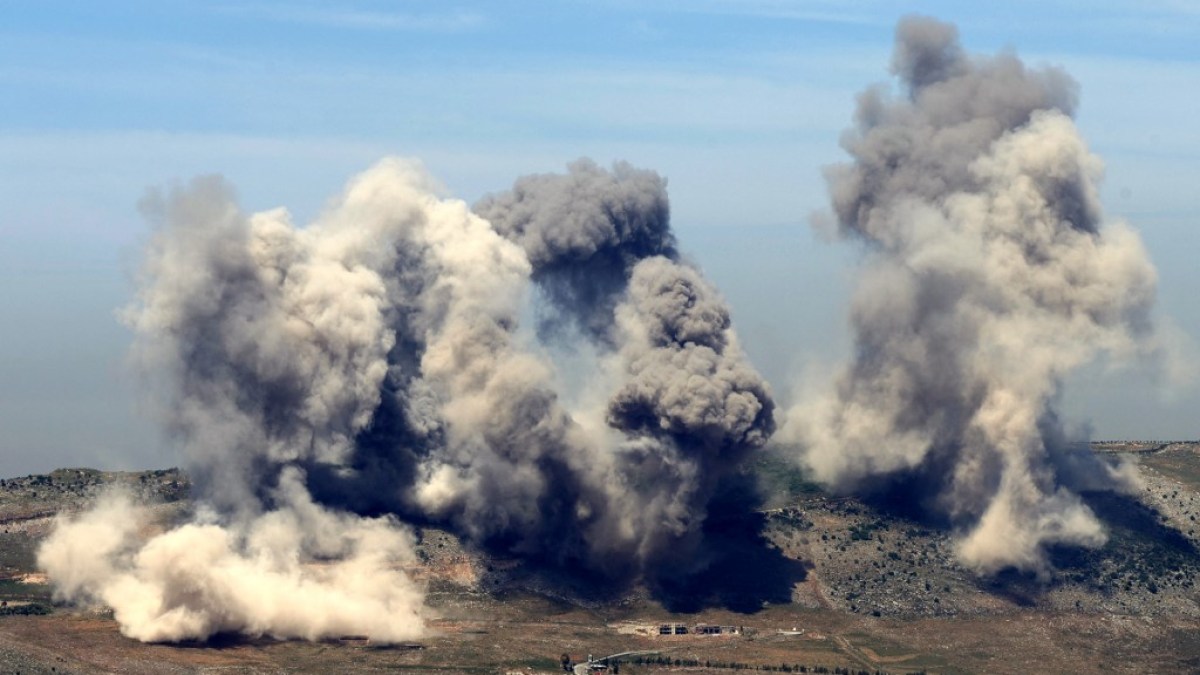
Lebanon’s Prime Minister Nawaf Salam condemns Israeli attacks, says ‘all ceasefire violations must end’.
Israel has launched one of its most intense aerial assaults on southern Lebanon since a truce halted last year’s war with Hezbollah, according to Lebanese officials and the Israeli military.
Air strikes on Thursday targeted several locations across the Nabatieh region, around 12km (7 miles) from the Israeli border. At least one person was killed and eight others injured, Lebanon’s Health Ministry said. Thick plumes of smoke rose from the bombed hilltops as residents fled the affected areas.
The Israeli army said its warplanes struck a “Hezbollah infrastructure site”, but gave no further details. The claim could not be independently verified.
There was no immediate response from Hezbollah, which had previously said it withdrew its fighters from the border following the United States-brokered ceasefire.
Lebanon’s President Joseph Aoun said in a short post on X that he was closely monitoring the situation in southern Lebanon after Israeli strikes hit the region.
Lebanese Prime Minister Nawaf Salam condemned the attacks. In a statement on X, he said: “All Israeli violations of UN Resolution 1701 and ceasefire agreements must come to an end. The Lebanese government has not – and will not – stop pushing for Israel’s full withdrawal from our territory.”
الدبشة pic.twitter.com/o54o2MwjX0
— المنشد علي بركات ( حساب جديد) (@AliBarakat2023) May 8, 2025
Although the truce officially ended hostilities, sporadic cross-border attacks have continued. Israel has regularly broken the truce and carried out air raids across southern Lebanon, also hitting Hezbollah-controlled neighbourhoods in Beirut’s southern suburbs.
Under the terms of the ceasefire, Hezbollah and other armed groups are not permitted to operate or store weapons south of the Litani River, while Israel is required to withdraw from southern Lebanon and allow the Lebanese army to deploy in the region. However, both sides have accused each other of violating the agreement.
Israel still occupies five strategic hilltops along the border. While rockets have been fired into Israel from Lebanese territory on two separate occasions, Hezbollah has denied involvement.
The recent escalation marks a sharp intensification of the conflict, rooted in Hezbollah’s support for Hamas during Israel’s ongoing war on Gaza.
Hezbollah’s deputy leader, Naim Qassem, has maintained that the group no longer keeps weapons in the border zone, in accordance with the truce.
-
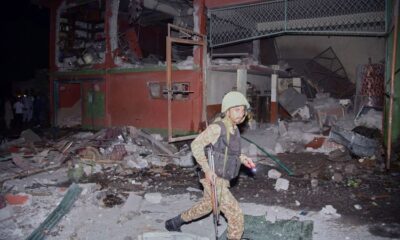
 Asia2 days ago
Asia2 days ago‘Operation Sindoor:’ Why India attacked Pakistan and conflict has escalated dramatically
-
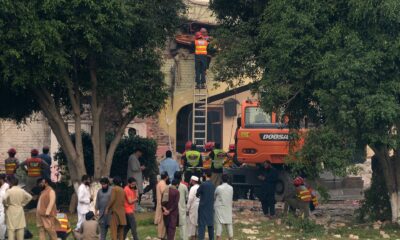
 Conflict Zones2 days ago
Conflict Zones2 days agoHow world leaders are reacting to India-Pakistan military strikes | Border Disputes News
-

 Lifestyle2 days ago
Lifestyle2 days agoThe Met Gala is over, but dandyism isn’t. Here’s how to dress like a dandy in everyday life
-
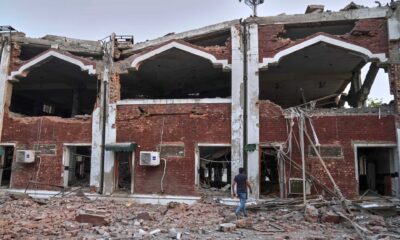
 Conflict Zones1 day ago
Conflict Zones1 day agoOperation Sindoor: What’s the significance of India’s Pakistan targets? | India-Pakistan Tensions News
-

 Europe1 day ago
Europe1 day agoLive updates: New pope to be elected by the conclave
-

 Middle East1 day ago
Middle East1 day agoWhat does the truce between the Houthis and the US mean for Yemenis? | Houthis
-

 Africa1 day ago
Africa1 day agoKenya sentences four men for trying to smuggle ants out of the country
-
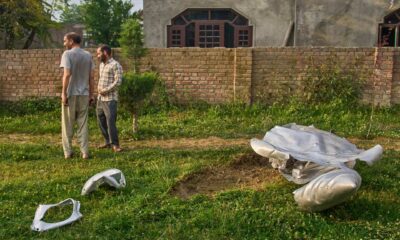
 Conflict Zones1 day ago
Conflict Zones1 day agoInformation war: Are India or Pakistan telling the truth about attacks? | India-Pakistan Tensions News




